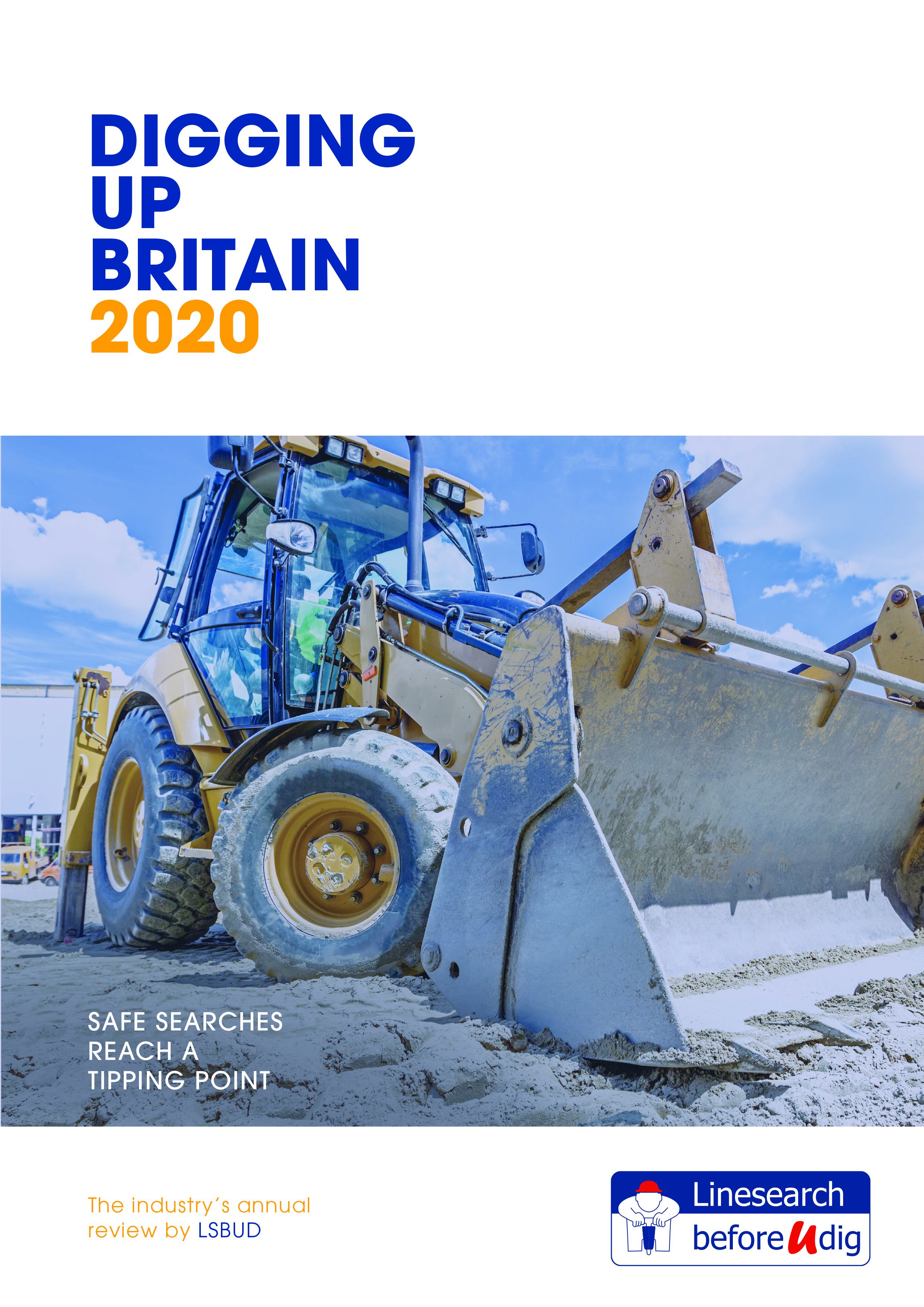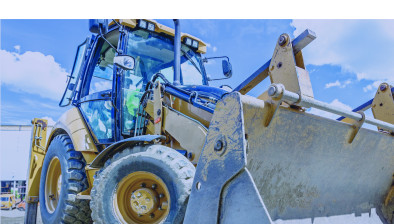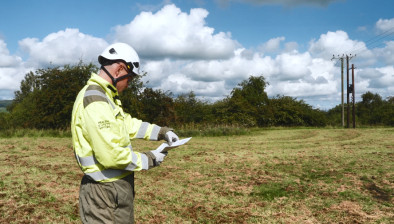Excavation work within construction sector ‘safer than ever’

With 71% of all digging work being preceded by an online search the state of the UK’s infrastructure, the sector is now safer than ever before, a new report has found.
The third iteration of the Digging Up Britain report was launched this week, looking at the state of UK excavation work, the volume of digging work taking place, the use of data, and much more.
The report by LSBUD reveals that a record 2,832,027 search enquiries were registered on its collaborative portal in 2019, a 10% increase on the previous year, and almost double that of just five years ago. This means that a search enquiry was placed every 3.7 seconds during the average working day.
Richard Broome, managing director of LSBUD, said: “We have reached a ‘tipping point’ in terms of safe digging – which is good news both for the UK’s underground pipes and cables, and those construction workers who dig near them. Our data suggests asset searching on the LSBUD portal has rapidly become second nature for people. It’s now a standard step in the vast majority of construction projects where there’s any form of excavation involved.”
As in previous years, the majority of digging work is done on behalf of the telecoms sector, with its contractors and operators completing 911,455 searches and making up 32% of all searches in 2019. The water industry followed with 592,126 searches, accounting for 21% of the total.
There was a 17% jump in the amount of digging on the UK’s highways, with 421,452 searches relating to road projects in 2019. This is the highest level ever recorded on the LSBUD portal and means road projects now account for 15% of all the digging taking place in the UK.
In terms of the housing sector, the data suggests a shift away from building new houses, towards renovating and improving existing homes. Whilst figures relating to housing dropped by 21%, searches for domestic building projects were up by 54%. Planning applications also saw an enormous jump, increasing by 825%.
Digging Up Britain 2020 not only analyses the volumes and type of digging work taking place but also the nature of the projects. It reports that ‘emergency searches’ increased by 59% on the previous year and 197% on two years ago with 316,922 searches deemed as urgent in 2019. This trend may present a challenge to construction firms dealing with asset owners who are handling search enquiries themselves, rather than via the collaborative LSBUD portal.
Richard Broome added: “Although a search enquiry through our portal will typically get a response in minutes, many utility companies handling these themselves can take up to 28 days to provide information about their networks. The increase in ‘emergency’ requests will put huge pressure both on these timescales and on the construction projects dependent on a prompt response.”
Whilst the telecoms and water industries did more searches than ever before, their overall share of total searches fell in 2019. This is due to a major surge in searches by private individuals, whose searches jumped by 10% in just 12 months.
Mr Broome said: “The fact that private individuals now make up four% of searches shows that awareness of using a central search system to check what’s under the ground before digging is now widespread.”
Even with all the positive movements, the report still highlights an area of concern. Just 10% of water companies share their asset information via the LSBUD portal. This means the water sector remains incredibly vulnerable to construction workers hitting their asset. This is in stark contrast to gas and electricity companies where 80 and 70% respectively share their network data.
Richard Broome concluded: “Over the last year we have seen significant strides being taken in terms of the volumes of assets which can now be easily found, and the numbers of thorough searches taking place before a spade hits the ground. As is always the way, there is more that can be done.
“On the asset owner side, we hope that the remaining utility companies recognise the benefits of sharing their information through our portal. Those that do better protect their own assets and are better equipped to manage their risk and resources. In terms of searching, we want even more people who are doing the digging, be they employees, contractors, or private individuals, to complete a search before any digging work begins. If we have change like this from both sides, and have everyone pulling in the same direction, assets and people will be safer.”




















